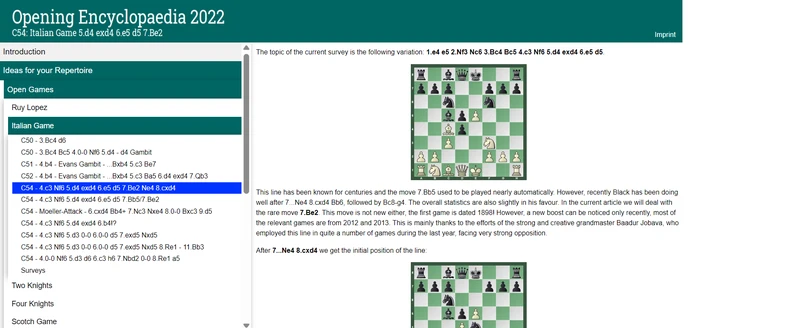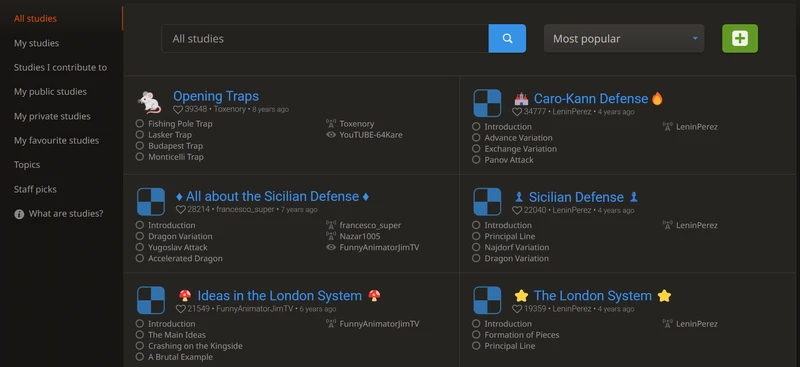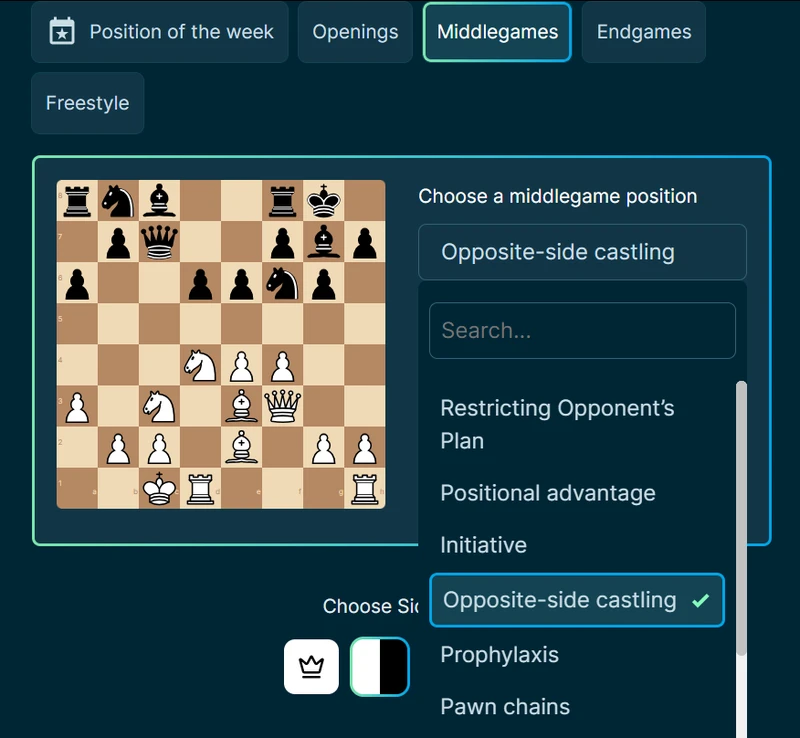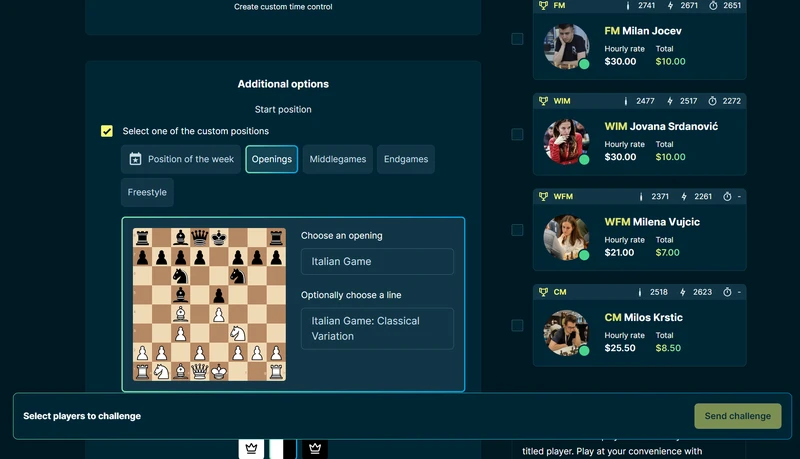
Tips for Studying Chess Openings Effectively
Studying chess openings is an essential part of improving your game. A solid opening repertoire helps you reach favorable middlegame positions and avoid falling into early traps. However, many players make the mistake of memorizing moves without understanding their purpose.Here are some key tips to study openings effectively:
1. Use Online Databases, Tools, and Learn from Strong Players
Use databases like Chessable, lichess.org, ChessBase, and to study top openings, spot patterns, and analyze grandmaster strategies. Engines like Stockfish help verify and refine your opening choices.
Chessable offers interactive courses with spaced repetition, making it great for memorizing openings.
ChessBase is a deep analysis tool with an extensive game database, ideal for serious players and preparation. The ChessBase Opening Database is a great tool for detailed analysis, especially for top-level players.
Lichess.org studies combines learning resources, an opening explorer, and a vast player pool for practice and improvement.
Watching grandmaster games helps you understand key ideas. Follow streamers and YouTube channels for clear and structured lessons on openings.
2. Understand the Ideas, Not Just the Moves
Simply memorizing opening moves without grasping the underlying principles will limit your improvement. Instead, focus on understanding:
- Typical middlegame plans for both sides.
- Tactical motifs that frequently occur in your chosen opening.
- The pawn structures that arise from the opening.
On BoltChess, it is possible to practice typical middlegame positions from specific openings.

3. Play Thematic Training Games
A great way to deeply internalize an opening is to play thematic games where you begin from a specific position. For example, you can set up a middle game structure from the Italian or a Sicilian and play from there. BoltChess is perfect for this since you can challenge titled players to play your specific opening, testing your knowledge against stronger opposition.
4. Review Your Games and Fix Mistakes
After each game, take time to review what went right and what went wrong in the opening phase. Ask yourself:
- Did I remember the correct move order?
- Did I understand my opponent’s plan?
- Were there any tactics I missed?
- Did I reach a favorable middlegame position?
Use tools like lichess analysis and opening books to refine your play and correct recurring mistakes.
Final Thoughts
Studying chess openings should be an active and engaging process. By focusing on understanding rather than rote memorization, practicing regularly, and using the right tools, you can build a strong opening repertoire. Platforms like BoltChess offer a great way to practice your openings against titled players, helping you sharpen your skills in a real-game setting. Start implementing these tips today, and watch your opening play improve significantly!
Website for training games: https://boltchess.com/
Private lessons/Courses: https://www.chess-boost.com/
You may also like
 GM Avetik_ChessMood
GM Avetik_ChessMood10 Things to Give Up to Enjoy Chess Fully
Discover how embracing a lighter mindset can help you enjoy chess again and achieve better results. WGM mlatb
WGM mlatbThe Power of Thematic Training Games
Improving at chess isn’t just about studying opening theory and solving puzzles. Many players reach … WGM mlatb
WGM mlatbFreestyle Chess: All About It & How to Play Against Titled Players
Freestyle chess, also known as Fischer Random Chess or Chess960, is a chess variant designed to elim… GM Avetik_ChessMood
GM Avetik_ChessMoodThe Right (and Wrong) Way to Build Your Opening Repertoire
Here’s how to build your opening repertoire smartly and avoid 5 common mistakes. WGM mlatb
WGM mlatbOpposite-Side Castling: How to Attack and Practice
Opposite-Side Castling: How to Play and Attack FM CheckRaiseMate
FM CheckRaiseMate